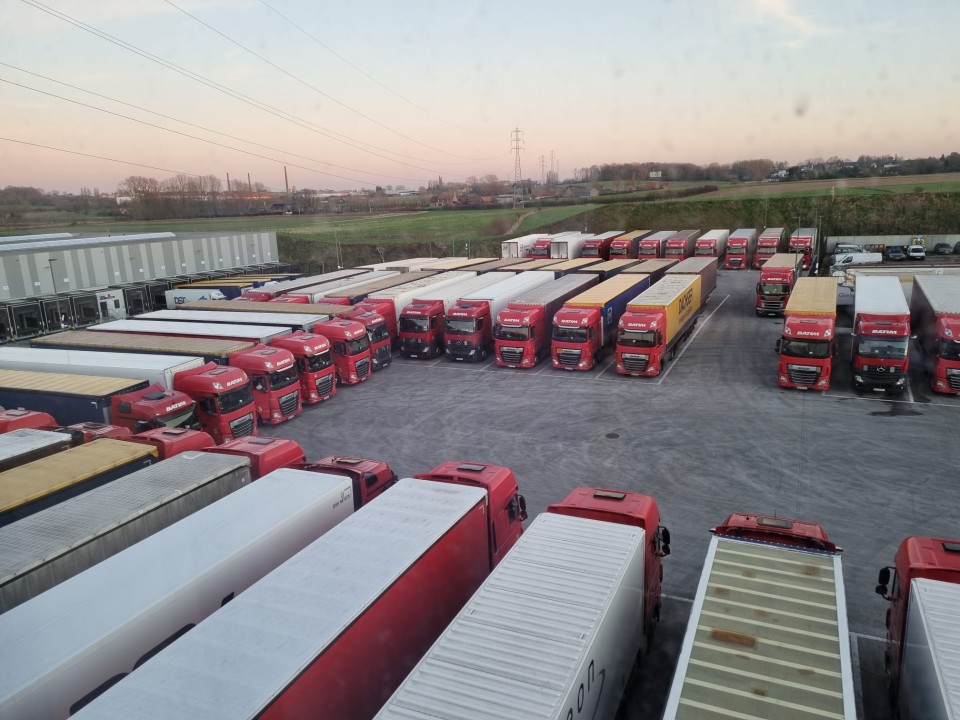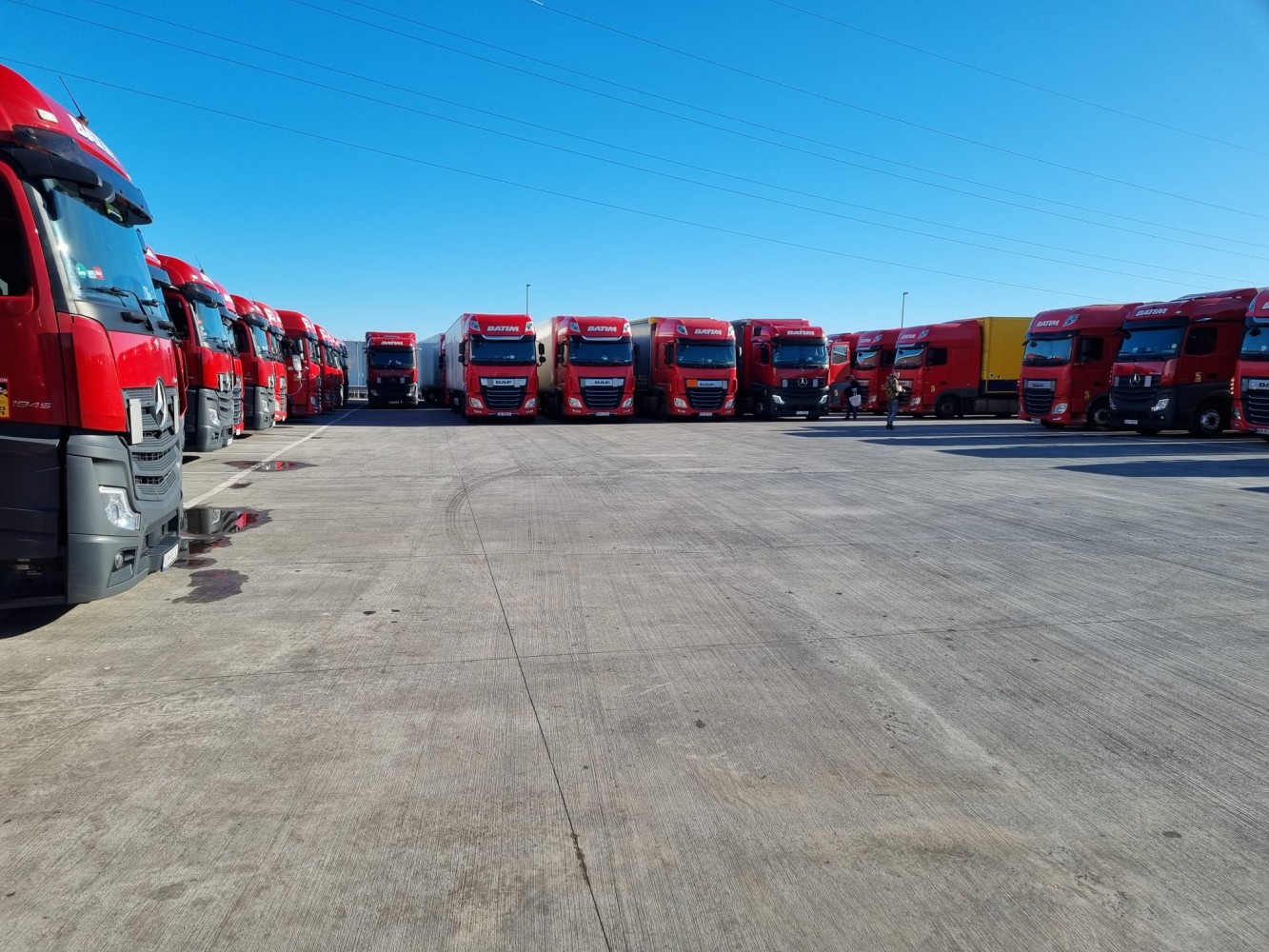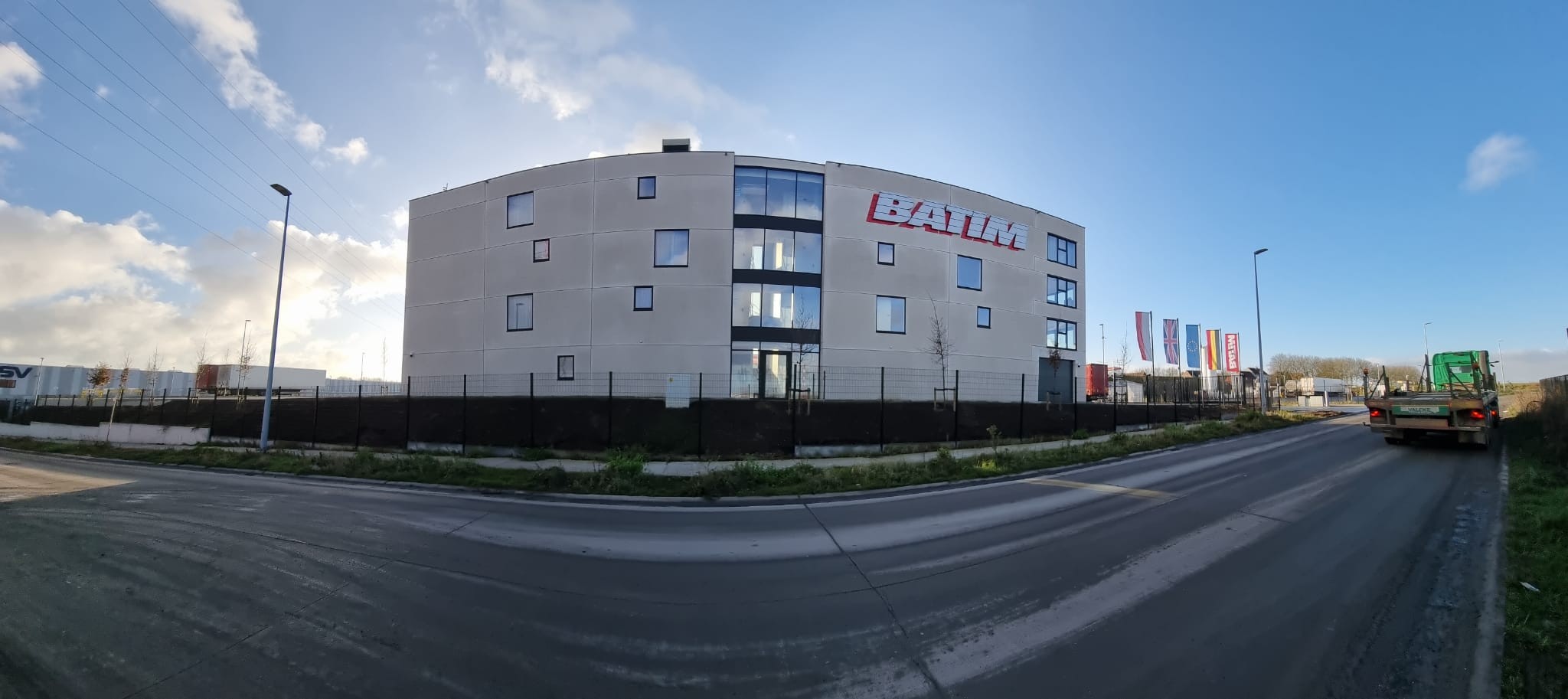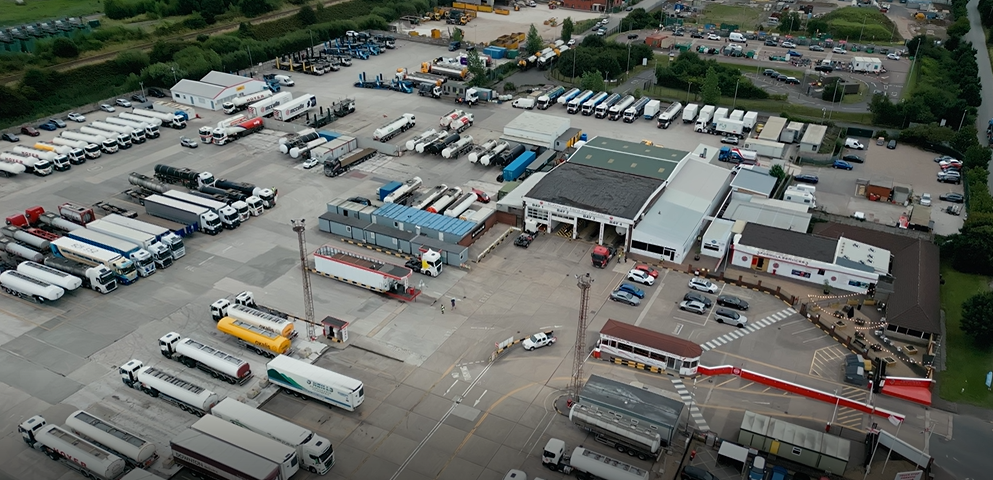
Susie Jones
Viaje SNAP de Batim International Transport & Spedition
Creado: 19/02/2025
•
Actualizado: 19/02/2025
Fundada en 1995, Batim International Transport presta servicios de transporte y expedición de mercancías en toda Europa. La empresa se enorgullece de su excelente calidad y de una flota de última generación compuesta por vehículos SCANIA y Mercedes.
La empresa, con sede en Stary Sącz (Polonia), no es ajena al crecimiento. En sus inicios, Batim empezó con dos cabezas tractoras y ahora cuenta con más de 500.
En este corto periodo de tiempo, la empresa adquirió numerosas acreditaciones y certificados -entre ellos el de mejor empleador del año en 2014 y el reconocimiento de la revista Forbes en 2015-. Con la ampliación de su flota y la mejora de sus servicios, la empresa se esfuerza constantemente por crecer.
Batim International se unió a SNAP en sus inicios y sigue utilizando su cuenta SNAP para reservar plazas de aparcamiento en toda Europa para su gran flota. Hablamos con Krzysztof, Director de Operaciones, que nos cuenta la experiencia de la empresa con SNAP.
Ventajas de SNAP para las flotas
SNAP pone a disposición de las flotas más de 450 socios de servicios en toda Europa donde pueden utilizar nuestra solución de pago de flotas. "Nos unimos a SNAP por la ausencia de transacciones en efectivo", explica Krzysztof.
Una ventaja para muchas flotas, ya que SNAP proporciona una solución de pago para abonar sin efectivo ni tarjeta los servicios para camiones. Esta solución de pago puede utilizarse en artículos como el lavado de camiones, el cruce de Dartford y el aparcamiento de camiones. Esto último, afirma Krzysztof, ha sido especialmente beneficioso.
"SNAP me ha beneficiado al darme la posibilidad de reservar un aparcamiento, por lo que no tengo que preocuparme de un sitio para el conductor".

La posibilidad de buscar un socio de servicios de parada de camiones a través de SNAP también ha sido una ventaja para Krzysztof. Explica que "la posibilidad de comprobar y encontrar toda la información detallada sobre muchas paradas de camiones en diferentes países, para estar seguro de que hay todo lo necesario en relación con la carga particular y las instalaciones para los conductores" ha sido una de las características más útiles para él.
Además, SNAP tiene enormes ventajas para los conductores de Batim. La flota de conductores de Krzysztof puede estar tranquila sabiendo que dispone de una amplia red de aparcamientos para camiones y depósitos entre los que elegir. Krzysztof afirma que la "amplia red de aparcamientos para camiones" de SNAP ha sido inestimable.
Muchas empresas de todo el continente han aumentado sus ingresos con nuestro Plan de Aparcamiento en Depósito. El programa permite a las flotas ofrecer sus plazas de aparcamiento a la red y ganar dinero extra, ayudando a los conductores a evitar aparcamientos y polígonos industriales vulnerables. Batim International contribuye a paliar la escasez de aparcamientos en Europa uniéndose a este plan con su depósito de Bélgica. El centro ofrece 20 plazas para otros conductores cuando sus camiones están en la carretera.
Impacto del servicio SNAP en el bienestar de los conductores
El bienestar de los conductores ha sido un tema candente de debate en la comunidad del transporte por carretera. Como profesión exigente, es fácil ver cómo las largas horas, el aislamiento social y un estilo de vida sedentario pueden afectar a la salud mental.
Las flotas tienen la responsabilidad de velar por el bienestar de sus conductores. Sin embargo, las paradas de camiones también pueden tener un impacto significativo. Los aparcamientos de depósito y las paradas de camiones con instalaciones básicas pueden mejorar significativamente el bienestar de los conductores. Algo que Krzysztof y su equipo consideran vital para su flota de más de 800 conductores.
Cuando se le pregunta qué pueden hacer las paradas de camiones para contribuir al bienestar de los conductores, Krzysztof afirma: "Predominantemente, los conductores necesitan una ducha y un aseo limpios". Aparentemente una solución sencilla para muchos, sin embargo, el impacto que puede tener en la experiencia de un conductor es sustancial.

Servicio al cliente con SNAP
En SNAP nos enorgullecemos de ofrecer a las flotas y a los conductores el apoyo que necesitan para trabajar de forma eficiente y eficaz. Nuestro experimentado equipo de atención al cliente y gestión de cuentas ayuda a flotas y conductores con cualquier consulta. Algo que Krzysztof y el equipo han encontrado útil.
"Nos hemos puesto en contacto con el equipo de atención al cliente de SNAP, tanto por correo electrónico como por teléfono. Siempre hemos recibido un trato individualizado para cada caso, comprensión y buena voluntad por parte de los empleados de SNAP para ayudarnos en todo lo posible", explica Krzysztof.
Inscriba su flota en SNAP hoy mismo
Nuestra solución de pago de flotas se utiliza cada 13 segundos en todo el continente para pagar los servicios de camiones. Visite snapacc.com para unirse a las más de 7.000 flotas que utilizan la Cuenta SNAP como solución de pago de flotas todo en uno.



